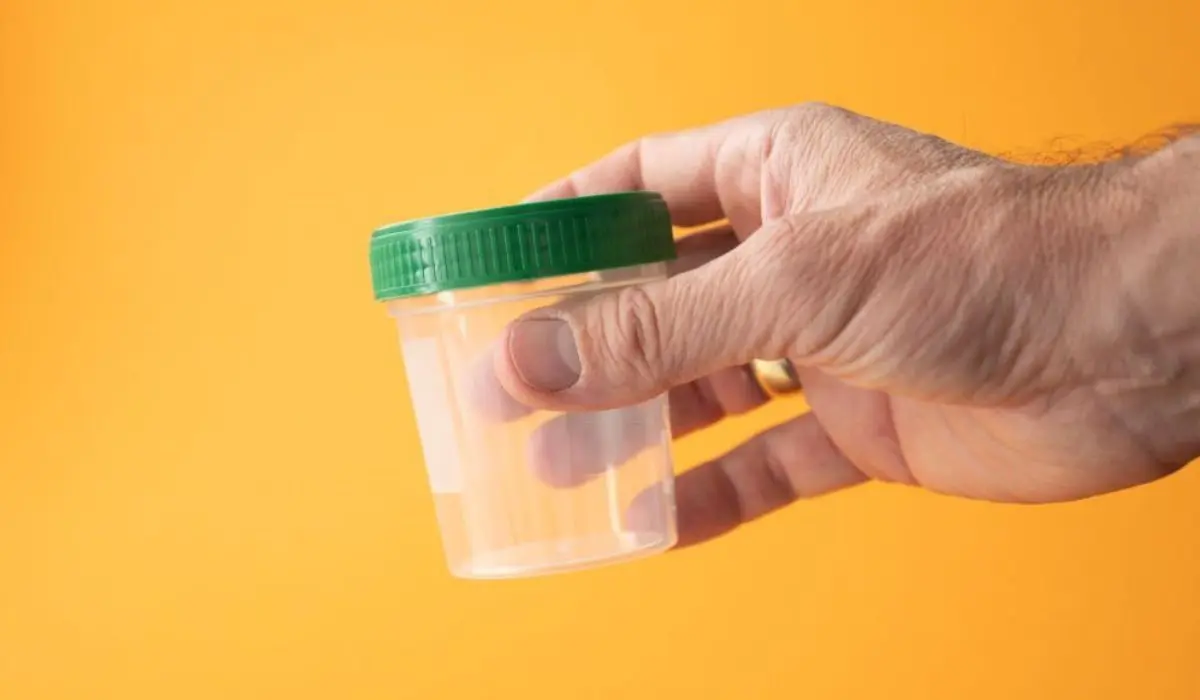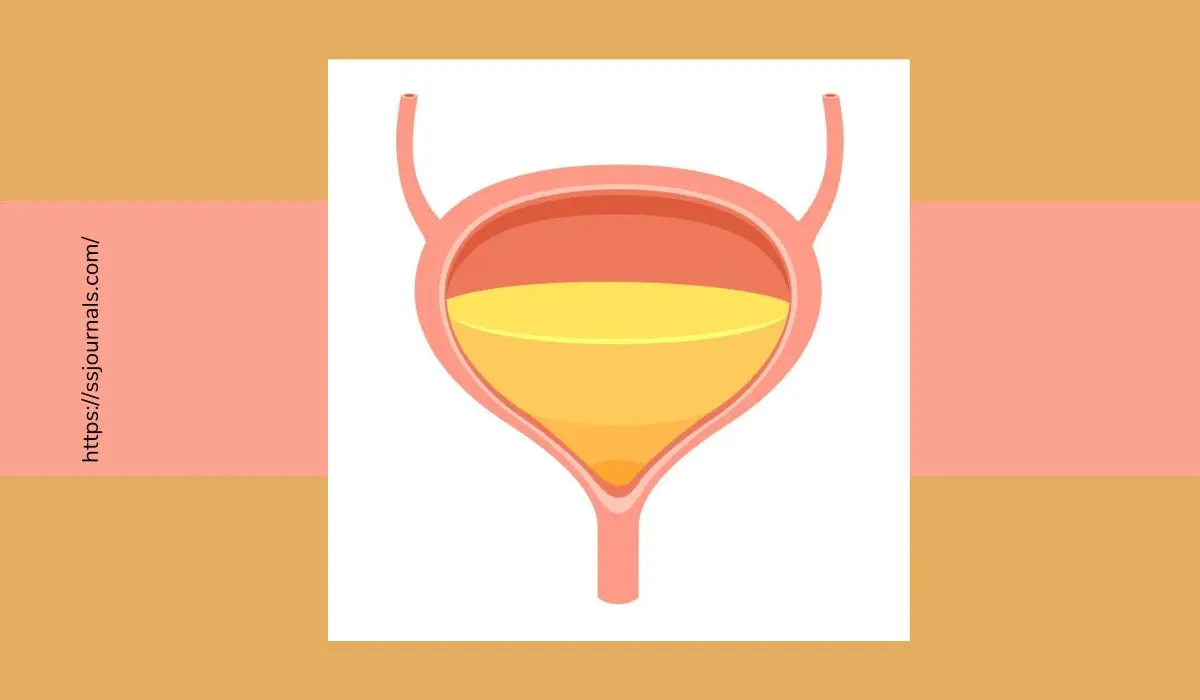Urobilinogen is a waste product formed as hemoglobin from dead red blood cells gets broken down. Some amount of urobilinogen appears in urine normally after being filtered out by the kidneys. However higher than normal levels can potentially indicate certain medical problems.
Why Is Urobilinogen High In Urine?
Urobilinogen is a chemical compound produced when hemoglobin in aged red blood cells gets metabolized into bilirubin. Some urobilinogen gets excreted into bile and passed into stool. The remaining amount gets filtered by the kidneys into urine as a waste product.

A urinalysis can detect the level of urobilinogen in urine through a simple dipstick test. Standard reference ranges define:
➜ Normal levels: Less than 1 mg/dL
➜ Increased levels: Greater than 1 mg/dL
Elevated urobilinogen urine levels usually stem from one of three main underlying causes: liver disease, hemolytic anemia, or intestinal bleeding. Understanding the possible reasons for too much urobilinogen production helps diagnose medical conditions requiring treatment.
What Causes High Urobilinogen?
Here are the most common conditions associated with increased urine urobilinogen:
Liver Disease
Cirrhosis, hepatitis, and fatty liver decrease the liver’s ability to capture and metabolize bilirubin and urobilinogen from circulation. This allows more to be excreted into the urine.
Hemolytic Anemia
Conditions where red blood cells are broken down rapidly like sickle cell anemia or autoimmune hemolytic anemia increase bilirubin and urobilinogen production beyond the liver’s processing capacity.
Intestinal Bleeding
Bleeding disorders like ulcers, polyps, diverticulitis, hemorrhoids, or cancer allow blood to enter the GI tract. Bacteria convert blood into urobilinogen that gets absorbed and passed into urine.
Biliary Obstruction
Blockages prevent bile from entering the intestines normally, causing urobilinogen to build up systemically until the kidneys filter it out.
Kidney Disease
Damaged kidneys have a lower capacity to capture and reabsorb urobilinogen into circulation, increasing how much spills into the urine.
Hemochromatosis
Iron overload from this condition can damage liver cells, reducing urobilinogen processing.
Alcoholism
Toxins and byproducts of alcohol metabolism overwhelm the liver and limit its ability to adequately process waste products like urobilinogen.
Diagnosing The Cause Of High Urobilinogen
If urine analysis shows elevated urobilinogen, doctors will perform more tests and assessments to determine the underlying reason:
What Does High Urobilinogen Mean?
In general, increased urine urobilinogen signifies:
– Excess bilirubin and hemoglobin metabolism byproducts are being produced
– The liver is unable to fully capture and process these waste products, allowing more to be excreted into urine
– There is likely some degree of liver dysfunction or damage present
– Increased red blood cell breakdown or intestinal bleeding may also be overloading the liver
– Kidney impairment may be limiting urobilinogen reabsorption
Significantly elevated levels indicate a major disruption in normal urobilinogen waste elimination. Mildly increased levels suggest more subtle dysfunction requiring further investigation.
How To Reduce High Urobilinogen Levels?
Remedying the underlying condition is key to resolving abnormal urobilinogen levels long-term:
– Treating liver disease – Stopping alcohol use, medications, or hepatitis therapy
– Managing hemolytic anemia – Treating autoimmune disorders, malaria, blood cell abnormalities
– Controlling bleeding disorders – Medication, endoscopy procedures, or transfusions
– Improving kidney function – Controlling diabetes and hypertension
– Relieving obstructions – Surgery or stenting procedures
– Correcting nutritional deficiencies – Iron, folate, or B12 supplementation
– Reducing iron overload – Phlebotomy or chelation therapy
Lifestyle measures like a healthful diet, exercise, hydration, and limiting alcohol also support organ function.
Can Urobilinogen Levels Be Too Low?
Rarely, decreased or absent urine urobilinogen may occur. This usually results from:
– Severe liver failure unable to process bilirubin into urobilinogen
– Biliary obstruction preventing elimination into a stool
– Certain antibiotic therapies killing GI flora required to convert urobilinogen
Unless related to end-stage liver disease, low urobilinogen does not have severe clinical ramifications. However, it can help pinpoint the cause of concurrent jaundice if present.
When To See A Doctor?
Consult your physician if you experience any of the following possible signs of excessive urobilinogen:
➜ Yellowing skin or eyes
➜ Severe itching with no rash
➜ Abdominal swelling or fluid buildup
➜ Dark urine or light/clay-colored stool
➜ Fatigue, nausea, poor appetite
➜ Unexplained weight loss
➜ Fever or vomiting
Catching concerning symptoms early helps initiate prompt treatment for the underlying disorder causing abnormal urobilinogen excretion.
Conclusion
Some urobilinogen in urine is normal, but elevated levels usually indicate impaired bilirubin processing due to liver dysfunction or high heme turnover. A urinalysis coupled with a thorough workup helps diagnose causes like hepatitis, cirrhosis, anemia, intestinal bleeding, or obstruction that require treatment. With proper medical management, urobilinogen levels can serve as a useful indicator of therapeutic progress, since levels should fall back into normal ranges when the underlying condition improves.
FAQs
Limiting fried or fatty foods, processed sugars, and alcohol helps reduce toxin burdens on the liver. Emphasize vegetables, fruits, lean proteins, whole grains and nuts to provide micronutrients that support detoxification systems.
There are no proven home remedies to directly lower urobilinogen. But supporting your body’s natural detoxification process through diet, hydration, exercise, and stress management may help.
Yes, becoming dehydrated concentrates urine, allowing more urobilinogen to be detected. Ensure you are well hydrated before doing a urine test to prevent false elevations.
Not necessarily. More often, it indicates liver disease, anemia, or bleeding. But certain GI, kidney, and liver cancers could potentially be associated with increased urobilinogen excretion depending on cancer effects. Other testing would confirm cancer.
A UTI itself does not directly affect urobilinogen levels. But a UTI could cause microscopic bleeding which might contribute to increased urobilinogen production. Concurrent UTI and high urobilinogen warrant further medical investigation.

